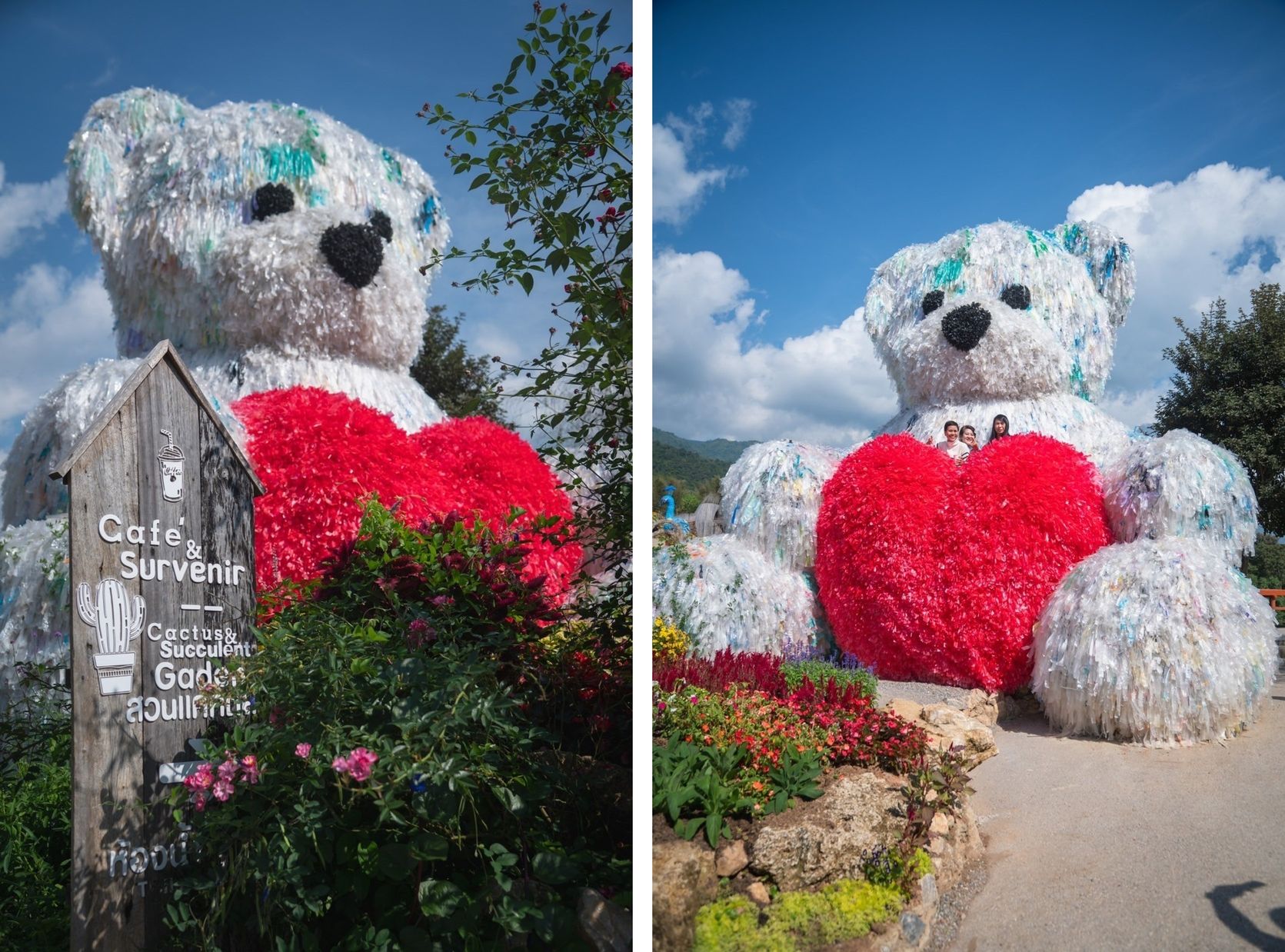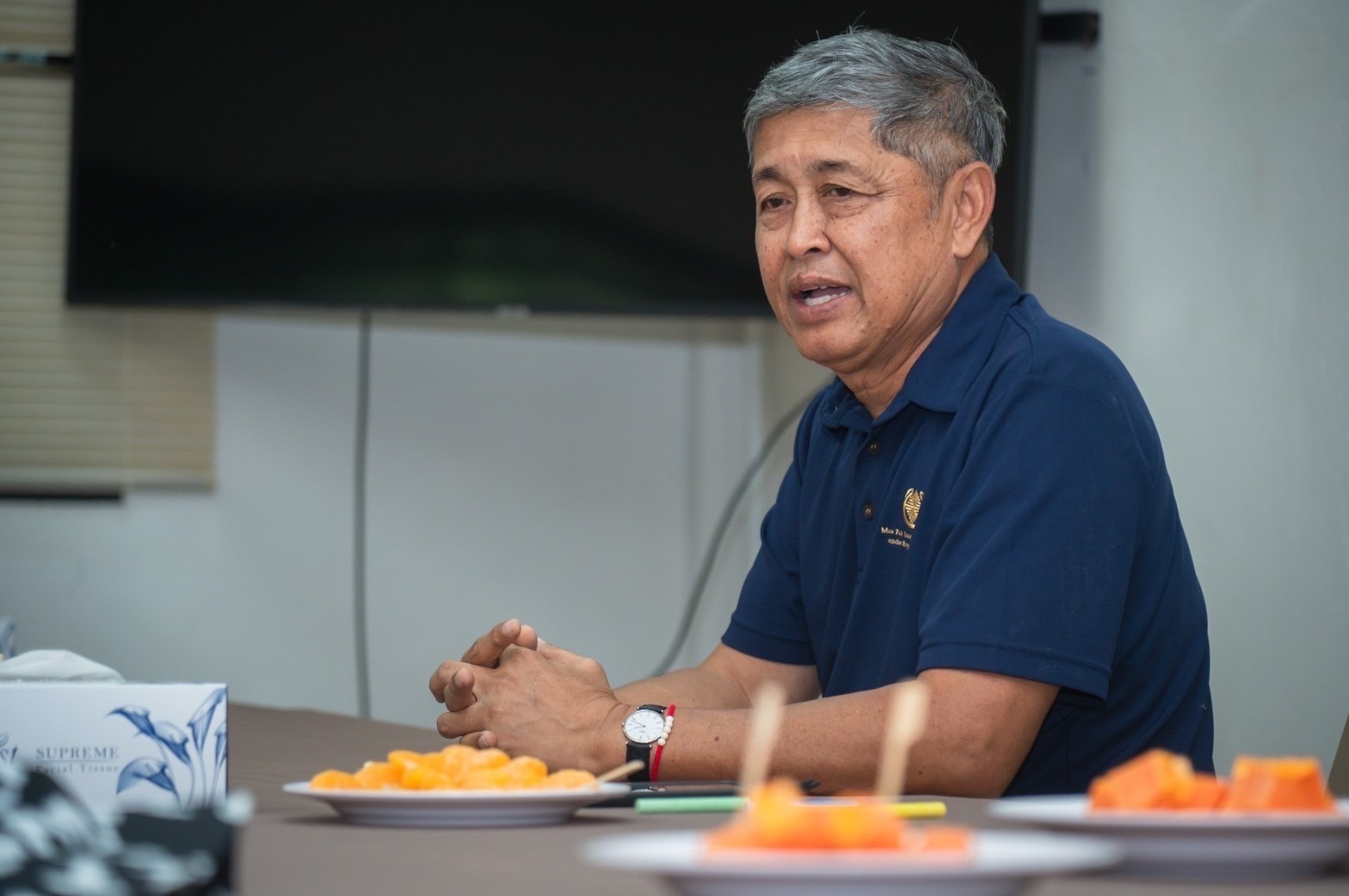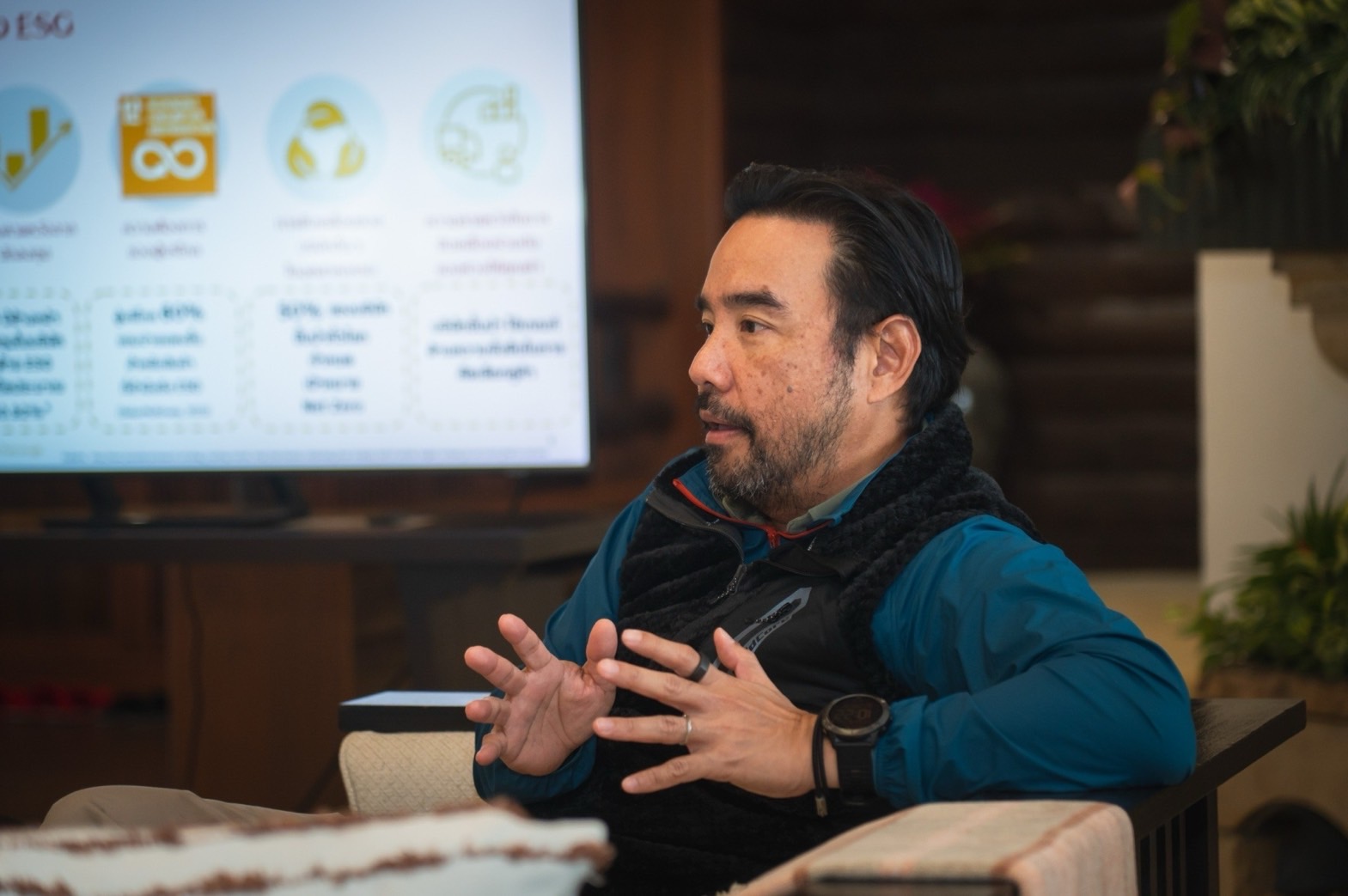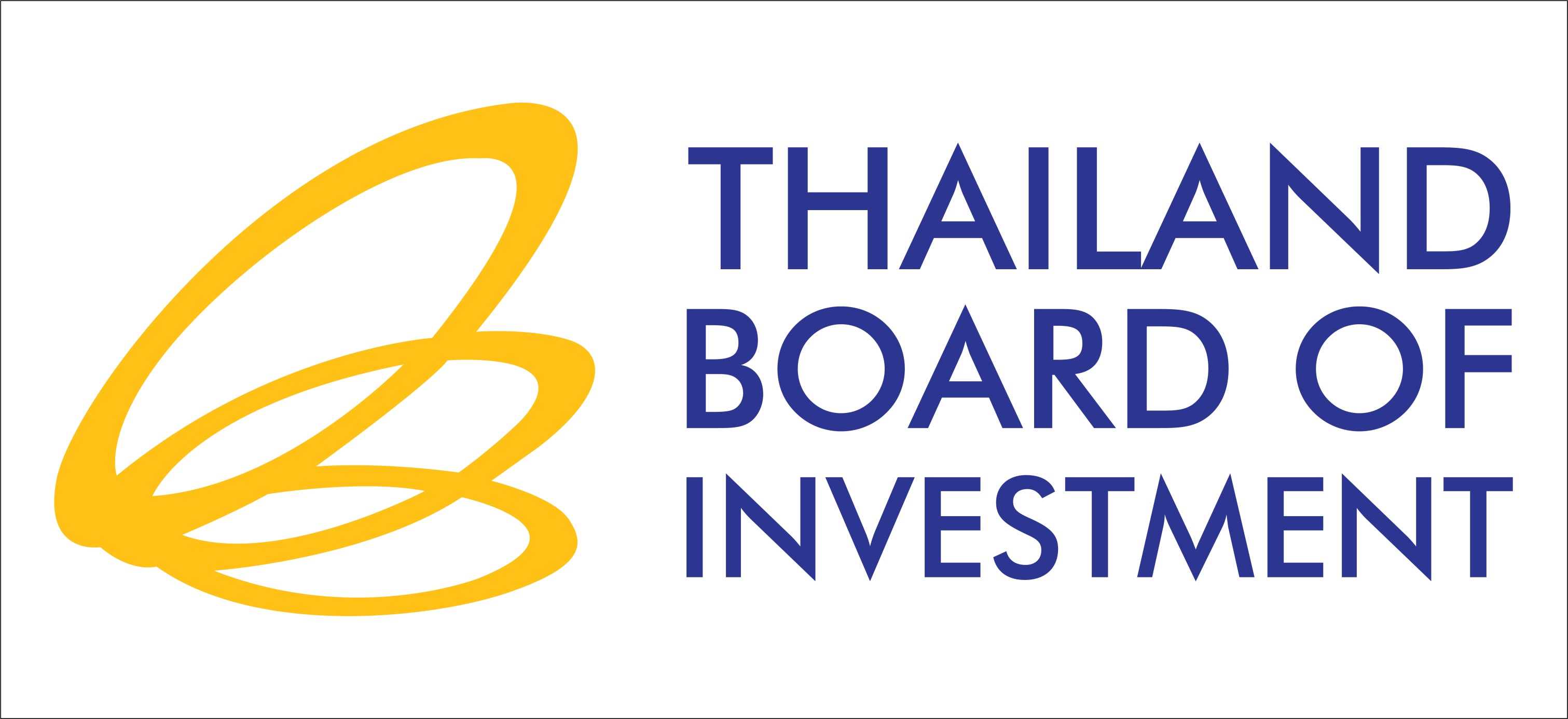Drug crackdown/Roi Jai Rak Project
Drug crackdown/Roi Jai Rak Project
Chatrudee Theparat
Roi Jai Rak Project, an alternative development with solutions to solve drug problems, set a goal to be independent financially within 12 years.
The drug trade is a serious problem that undermines the economy and society. Some border areas in Thailand are notorious for large-scale drug trafficking. And solving the problem is not easy. Using law enforcement and tighten the anti-drug law to crack down on seems not enough to solve the problem. It needs to provide knowledge and create jobs to prevent people in the community from turning back to the drug trade cycle.

A giant bear doll made from used plastic shopping bags, located in a flower garden in Chiang Rai’s Mae Ai district is an example of its initiative for tourism promotion.
Therefore, it is the birth of the "Roi Jai Rak Project" that has been implemented since 2017, in accordance with the royal initiative of Her Royal Highness Princess Bajrakitiyabha Narendiradebyavati.
Mae Fah Luang Foundation (MFLF) was approached by the Office of the Narcotics Control Board (ONCB) to join in a narcotics mitigation project by providing opportunities and alternatives for a legitimate livelihood to the communities with emphasis on addressing poverty, disparity and lack of opportunity as the root of the problems.
This was done through various economic boosting activities to create a stable income for the community and incentivize them to conduct legitimate livelihoods, with the long-term goal to create a model sustainable narcotics mitigation program in an urban environment.
Narong Apichai, chief development execution officer of MFLF under Royal Patronage, said villagers in the area are encouraged to grow 24 crops, both short-term and long-term crops, such as vegetables, rice and fruits. Beyond agriculture, handicrafts and tourism are promoted to do as a source of income for people in the area.

Narong Apichai, chief development execution officer, Mae Fah Luang Foundation under Royal Patronage
A flower garden in Chiang Rai’s Mae Ai district is an example of its initiative for tourism promotion. Currently, it becomes famous, featuring a giant bear doll made from used plastic shopping bags. Also, it provides a viewpoint on the highest hilltop for tourists to look down to enjoy the flower field below, with attractive locations for taking photos, along with coffee and souvenirs shops provided.
He said “Roi Jai Rak” currently marks the 8th anniversary. The operation has grown financially, from 241 million baht in total revenue in 2018 to 287 million baht in 2024. Its figure is expected to reach 400 million baht in 2029, the year that the project is aimed to become financially independent without requiring any government budget support.
The project is located in Huay Muang Ngam River valley covering 4 villages: Ban Muang Ngam Neua, Ban Huay San, Ban Hua Muang Ngam and Ban Muang Ngam Tai, as well as 20 villages in Tha Ton sub-district, Mae Ai district, Chiang Mai province. The operating period of the project totals 12 years (2017-2029).
The project covers 37,119 rai, including an agricultural area of 12,000 rai and a water system of 2,000 rai. The population in an area totals 1,132 families and 4,709 residents.
Located on the Thai - Myanmar border, it has faced risks from the influence of major drug traffickers in recent years. The project was launched on November 15, 2017, with an integrated cooperation between government agencies from both the central and local regions.
There are educational and environmental developments in the areas as well. The progress helps prevent the people in the community from returning to the drug trade cycle. Health promotion campaign is also promoted at the same times in order to reduce the number of drug users and addiction as a way for sustainable development.

ML Dispanadda Disakul, chief executive officer, Mae Fah Luang Foundation
ML Dispanadda Disakul, chief executive officer of Mae Fah Luang Foundation, said that implementing the Roi Jai Rak is an effort to create community participation and continuously increase the community's income. Without stable income, they would end up with the drug trade circle. Giving them opportunities and hopes is a key for them to get a bright future.
The Roi Jai Rak project is the development principle of His Majesty King Bhumibol Aduyadej The GREAT to help solve the drug problem. This model received much attention globally, especially in the United Nations. He raised the issue of drug problem that took place from poverty and the lack of opportunities.
Previously, the Roi Jai Rak community was not accepted among nearby communities until these people lost the chance to redeem themselves. So it required MFLF to help solve this problem in which alternative development can be used and solve problems for those who lack opportunities. This model has been extended to other countries with similar scenarios such as Brazil, Mexico, Algeria, and Nigeria as an alternative development.
“This makes Thailand widely recognized for the use of development principles to solve the drug problem, caused by a lack of opportunities and poverty,” he said.
07 January 2025
Viewed 199 time
 EN
EN 




